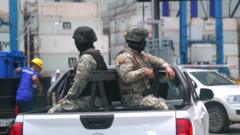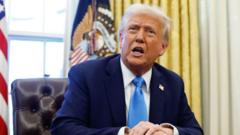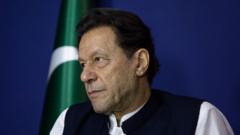Following a series of arson and gun attacks on French prisons, the government suspects drug gangs may be retaliating against a new crackdown on drug trafficking, raising concerns about prison security and the effectiveness of law enforcement.
French Prisons Under Siege: Government Blames Drug Gangs for Arson Attacks

French Prisons Under Siege: Government Blames Drug Gangs for Arson Attacks
A spate of violent attacks on French prisons has raised questions about the involvement of drug gangs amid a crackdown on drug trafficking.
In a wave of violence that has gripped the French prison system, several attacks involving arson and gunfire have occurred since Sunday night, leading authorities to investigate their origins. Although officials have left no stone unturned, considering political extremism or foreign interference as possible culprits, evidence increasingly points towards drug gangs responding to a governmental crackdown on narcotics.
Interior Minister Bruno Retailleau underscored this sentiment, stating, "It's not they who declared war on us. It’s we who declared war on them with our new law on drugs trafficking." This statement highlights an escalating conflict, as perpetrators employed a coordinated strategy to target vehicles associated with prisons, raising alarms about the operational capabilities of these gangs.
The rise of a previously unknown group, the Droits des Prisonniers Français (DDPF), complicates the narrative. The group claimed responsibility through graffiti and social media posts, asserting they are advocates for prisoner rights. Their communication, although riddled with grammatical errors, calls into question their ideological alignment with traditional far-left organizations that have historically championed such causes.
Investigators have observed that the attackers appeared more aligned with street-level drug gang operatives than politically motivated militants, reinforcing the theory of drug gang involvement. As authorities probe deeper, the question of international influence—especially from Russia and Algeria—remains a topic of discussion, though the focus has now shifted resiliently towards domestic issues.
In response, the French government is introducing a bill aimed at disrupting the operations of drug lords, including the establishment of a specialized prosecutors' office, enhanced investigative powers, and the creation of secure prisons intended for the most notorious criminals. The initiative aims to mitigate the trafficking epidemic and secure prison environments which have reportedly become untenable.
Nevertheless, the potential for gang leaders to manage their enterprises from behind bars aggravates the situation, evidenced by past incidents such as the prison escape of drug lord Mohamed Amra, resulting in grave consequences. The government's narrative suggests a change in the balance of power as they seek to regain control, asserting that drug gangs now feel threatened.
As investigations unfold, the French people remain on edge, awaiting clarity on the motivations behind these shocking prison attacks and the identities of those responsible. It is hoped that forthcoming arrests might provide the insight needed to understand this troubling phenomenon in France’s fight against organized crime.



















